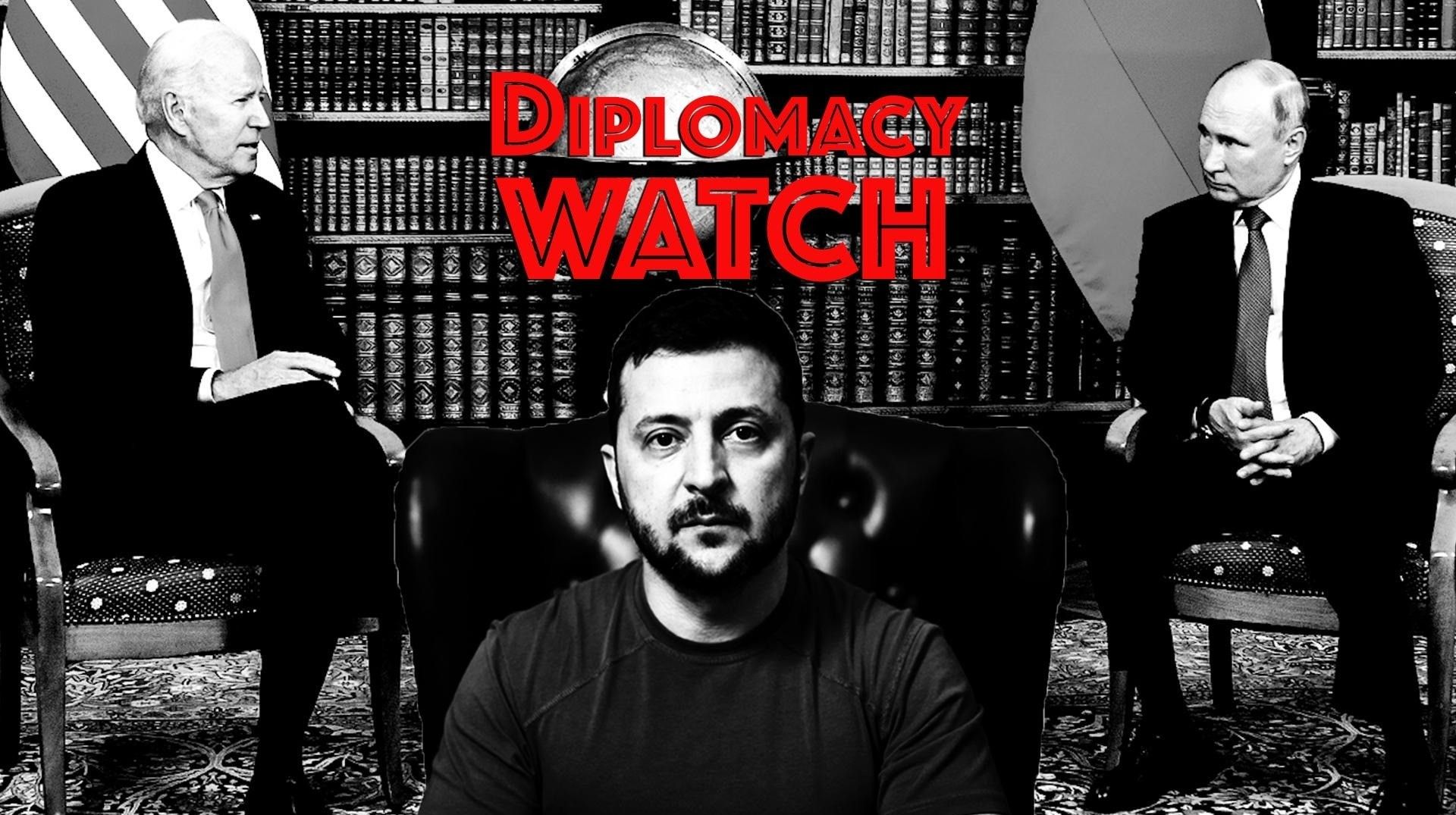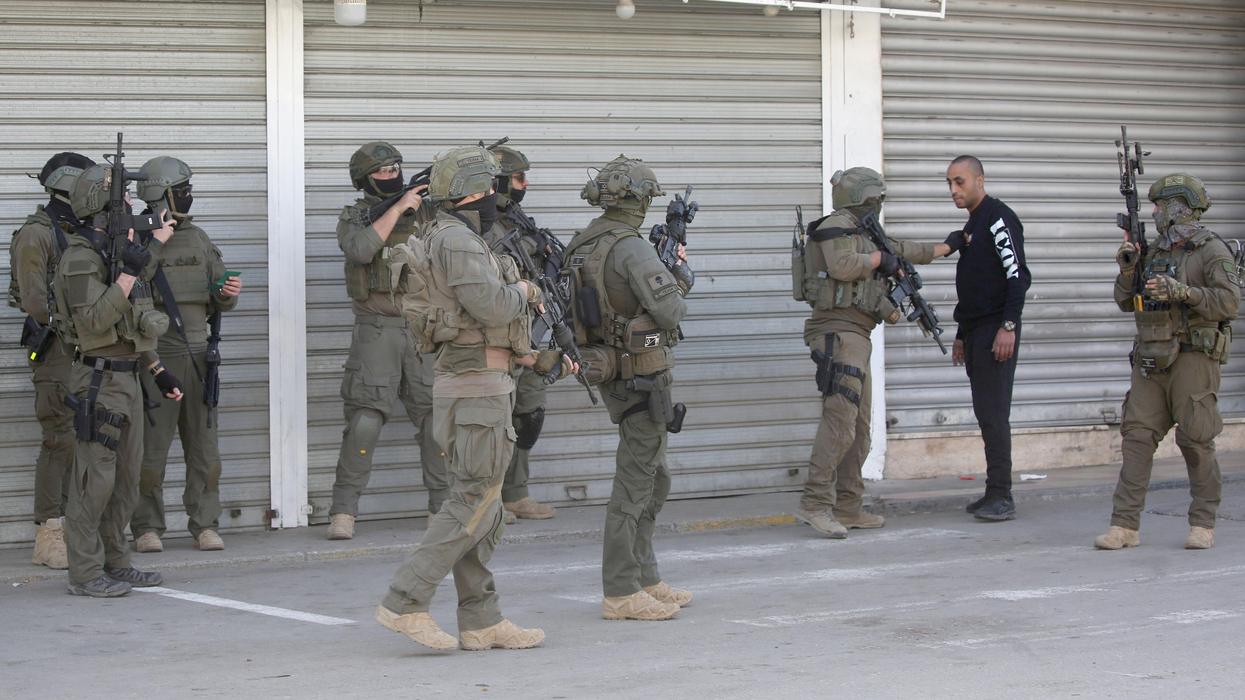If there’s one theme in Washington this week, it’s this: Ukraine needs more weapons, and it needs them now. Two top Biden administration officials told Congress Wednesday that, if new Ukraine funding isn’t passed soon, Russia could win the war within months or even weeks.
"A sovereign and secure Ukraine is critical to global security," Defense Secretary Lloyd Austin said during a meeting with European defense leaders earlier this week. "And we must not waver in our support for Ukraine."
While European leaders are attempting to fill some gaps in Ukraine’s stockpiles on a bilateral basis, there is little that can be done to bolster Kyiv’s defenses and keep its economy afloat without U.S. help. Congressional talks have so far failed to produce a deal that would trade border security measures for increased aid, and it’s looking increasingly likely that any future funding, if it is forthcoming, will narrowly focus on military aid at the expense of economic support.
A failure to pass new economic aid would badly damage Ukraine’s government, which currently relies on American and European cash to pay state employees and provide many essential services in the country.
Making matters worse is the fact that the European Union — which has been far more generous with budgetary support than military aid — is facing its own internal struggle over future funding. As the EU considers a new, $54 billion aid package, all eyes are on Hungarian Prime Minister Viktor Orban, who has long been skeptical of support for Ukraine.
“It's difficult. I know Viktor Orban well,” said Luxembourgeois Foreign Minister Xavier Bettel. “It won't be easy to convince him.”
There is, however, some hope that Orban will change his mind. The Hungarian leader has long opposed Ukraine’s accession to the EU but was willing to sit out a vote on the question last month after the bloc freed roughly $11 billion in Hungarian funds that had been frozen due to alleged democratic backsliding. In other words, Orban may throw his support behind more aid for the right price.
Ukraine also marked a consequential victory Wednesday when Slovakia’s controversial prime minister announced that he would back new aid during a visit to Kyiv.
But all of this uncertainty has left Ukraine in a difficult position. The blame game has already begun in anticipation of challenges on the battlefield, according to Politico. “If Russia wins the war against Ukraine, some officials in Kyiv are ready to pin the blame on the West,” an anonymous Ukrainian military official told the outlet.
If the tide starts to turn against Ukraine, President Volodymyr Zelensky “will desperately look for options of whom to blame,” the official continued.
The shifting dynamics suggest that the potential for a negotiated peace — a reasonably probable possibility just a month or two ago — is quickly fading as Russian leaders see an opportunity to pursue their likely advantage on the battlefield.
In other diplomatic news related to the war in Ukraine:
— Russia President Vladimir Putin “may be willing to consider dropping an insistence on neutral status for Ukraine and even ultimately abandon opposition to eventual NATO membership” in exchange for keeping the Ukrainian territory Russia currently occupies, according to anonymous people close to the Kremlin who spoke with Bloomberg. The report says the proposal is part of Moscow’s quiet signaling to Washington that it is open to talks to end the war, though U.S. officials deny any backchannel communications.
— Russia’s ambassador to Switzerland slammed the country’s decision to host a pro-Ukraine peace conference without Russian participation, saying that Swiss actions have caused it to lose “its role as an impartial international mediator,” according to Reuters. The Swiss talks will only include Kyiv’s supporters and will be based on a 10-point Ukrainian plan that the Kremlin has rejected out of hand. The ambassador also reiterated Moscow’s public demands for talks, which include an independent status for Ukraine and the protection of Russians and Russian speakers in the country.
— Talks aimed at restarting the Black Sea grain deal have quietly begun, according to Ukraine’s ambassador in Turkey, the country that held several previous rounds of negotiations on the issue, Reuters reports. Details on the new discussions are scarce, but the renewed interest in talks suggests that Ukraine’s alternative shipping route, which hugs the coast of Romania, has not been as effective at boosting trade as was previously hoped. The news also points to Russia’s increasing desperation to resume exports of fertilizers and fertilizer components, a key part of the original deal that Moscow abandoned due to alleged shortcomings in implementation.
— Turkey’s parliament formally approved Sweden’s accession to NATO, marking a major step in Stockholm’s so far arduous path to joining the bloc, according to the BBC. The Biden administration urged Congress to approve a sale of F-16s to Turkey shortly after the announcement, shedding light on what inducements helped Ankara come around.
The final country that must sign off is now Hungary. While Budapest has yet to give a specific reason for slow-rolling the decision, some members of the ruling Fidesz party have said they oppose Sweden’s accession due to its criticisms of alleged democratic backsliding in Hungary. Nonetheless, Prime Minister Orban said Wednesday that he “supports the NATO membership of Sweden” and will push parliament to move forward with ratification as soon as possible.
— Russian officials threatened to seize as much as $280 billion in Western assets if the U.S. and Europe follow through on their proposal to give $300 billion in frozen Russian assets to Ukraine, according to Reuters. Cyprus and the Netherlands have the most to lose, according to Russian state media, while countries like France, Germany, Britain, Japan, and the U.S. would also have significant assets seized. Meanwhile, a bill that would allow the U.S. to seize Russian funds overwhelmingly passed a U.S. Senate committee Wednesday. Backers of the proposal expect that it will pass both chambers of Congress with significant bipartisan support.
U.S. State Department news:
In a Wednesday press conference, State Department spokesperson Vedant Patel praised Turkey’s approval of Sweden’s accession to NATO and called on Hungary to follow suit. “We look forward to Hungary concluding their ratification process and the Alliance welcoming Sweden into NATO without further delay,” Patel said.
- Will Ukraine's effort go bankrupt gradually...then suddenly? ›
- What really happens if Ukraine aid runs out? ›
- Rightward, populist drift in EU elections signals big Ukraine shift | Responsible Statecraft ›
















